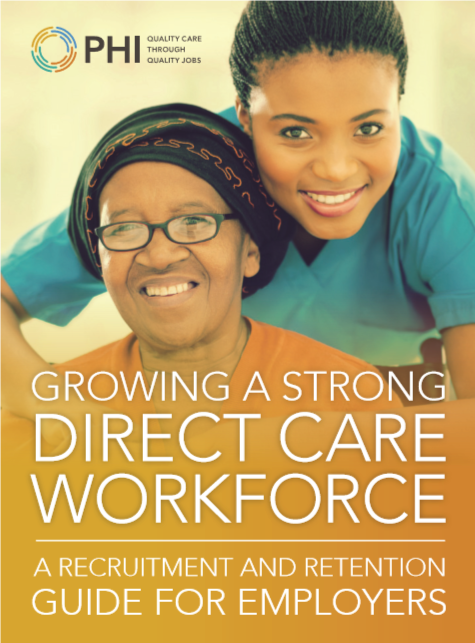There is a better way to recruit care workers, says American study
A U.S. recruitment and retention guide focused on the seniors’ care workforce reports that candidate referrals from existing employees are significantly more effective than general job advertising. PHI, a non-profit organization based in New York, reports that when one company tracked its recruitment and retention methods, it learned that its hiring rate was three per cent for candidates recruited online versus 44 per cent for referred candidates.

This is supported by BCCPA’s own research. Last summer, BCCPA asked over 1,200 frontline seniors care workers about their job satisfaction and why they chose to pursue careers in continuing care. Nearly 50 per cent of frontline workers reported that they had been referred to their occupation by a friend or family member, and 86 per cent reported that they would be willing to recommend their occupation to others.
This is just one of many insightful recruitment and retention strategies from PHI’s guide titled Growing a Strong Direct Care Worker: A Recruitment and Retention Guide for Employers. The guide outlines a 10-step roadmap for fostering a robust health workforce.
Some of the key takeaways include:
- Hire for character, train for skill: One of the most important questions to ask in a direct care interview is: “Tell me about a meaningful relationship you’ve had with an older person or a person with a disability, and how that relationship has impacted you.” Caregiving skills can be taught, but a caring nature is essential.
- Provide employment supports: Despite their commitment, direct care workers may face significant obstacles to remaining in their jobs, such as challenges with childcare, transportation, housing, immigration or health care. Employers can bolster retention rates by supporting workers in managing these issues.
- Promote peer mentorship: Peer mentorship can accomplish a range of goals, including supporting new hires, managing stress, encouraging organizational collaboration and offering experienced workers a career advancement opportunity.
- Appreciation pays off: Research shows that companies with a “recognition-rich culture” experience 31 per cent lower turnover rates than their peers. Four ways to show appreciate include: 1) Recognizing staff for specific actions or outcomes; 2) Implementing a formal recognition program; 3) Encouraging peer-to-peer recognition; and 4) Sharing employee recognition widely.
BC Care Providers Association has made health human resources and the hiring of health care aides and nurses as a top strategic focus on behalf of its members. For more information on our campaigns, visit our #BecauseBCCares page.





